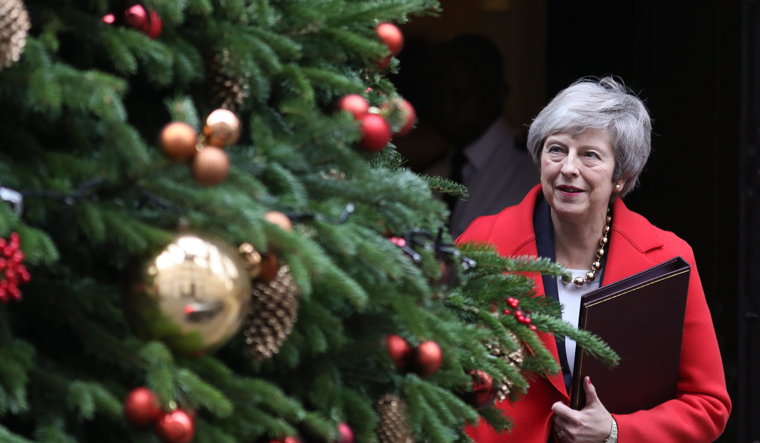UK Prime Minister Theresa May suffered a major embarrassment on Tuesday ahead of Tuesday's momentous Brexit debate. The House of Commons voted 311-293 to censure the government for failing to publish its advice about the Brexit deal the PM struck with the European Union last month.
The vote has forced May to promise to publish the full document ahead of the all-important December 11 vote. "This house has now spoken and it's of huge constitutional and political signficance," said opposition Labour Party member Keir Starmer.
The rebuke exposes May's lack of support in the parliament. May wants to secure parliament’s approval for her deal to keep close ties with the EU after leaving in March, but opposition is fierce, with Brexit supporters and opponents alike wanting to thwart or derail her plan.
The rebuke underscores the struggles May faces as she tries to keep Britain from crashing out of the world's largest single market in March without any firm trade arrangements.
The government suffered another blow just one hour later when parliament also voted in favour of an amendment that will give greater decision-making powers to MPs if, as expected, May's deal is voted down next week.
May was set to kick off five days of debates later on Tuesday by saying her vision of a future apart from the other 27 EU member states reflected the wishes of voters.
"The British people want us to get on with a deal that honours the referendum and allows us to come together again as a country, whichever way we voted," May was due to say.
But that message of unity suffered a setback from Tuesday's parliamentary vote. Downing Street argued that May's government had a right to receive confidential opinions that were unhampered by political considerations.
"The government is upholding an important point of principle," the prime minister's spokesman said.
Yet the text's full publication is unlikely to impact a Brexit deal vote that faces resistance from all sides of a bickering House of Commons.
The debates and final vote on December 11 will determine how, and possibly even if, Britain leaves the EU as planned on March 29, in the country’s biggest shift in foreign and trade policy in more than 40 years.
May’s plans are vulnerable to more change at the end of the debate, and advice from a senior EU legal aide that Britain had the right to withdraw its Brexit notice opened yet another front in her battle to win the approval of parliament.
(With agency inputs)


